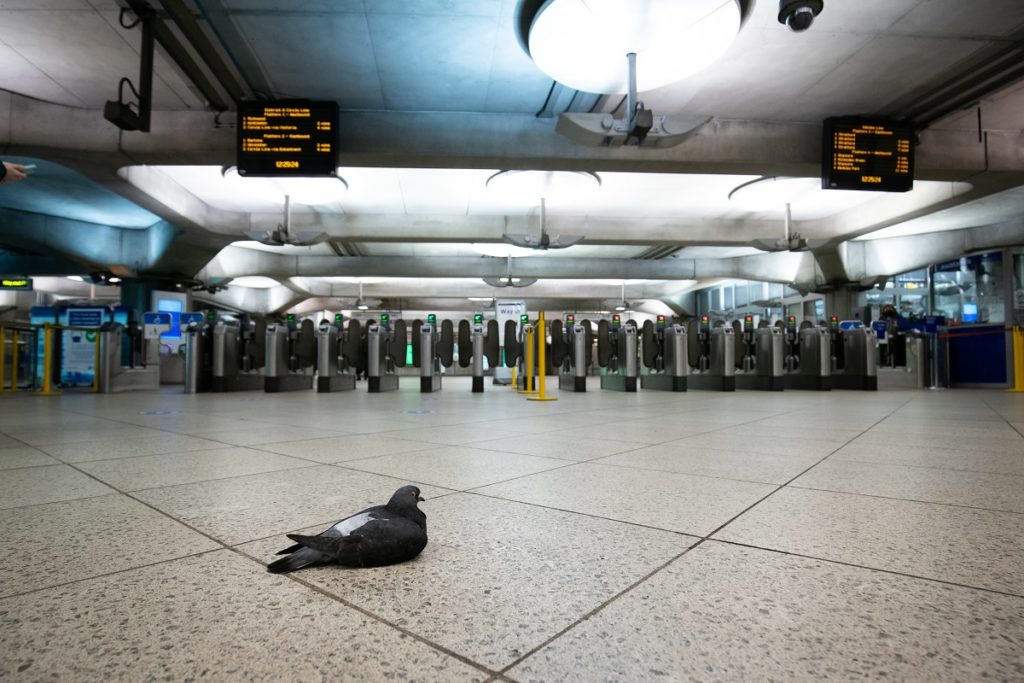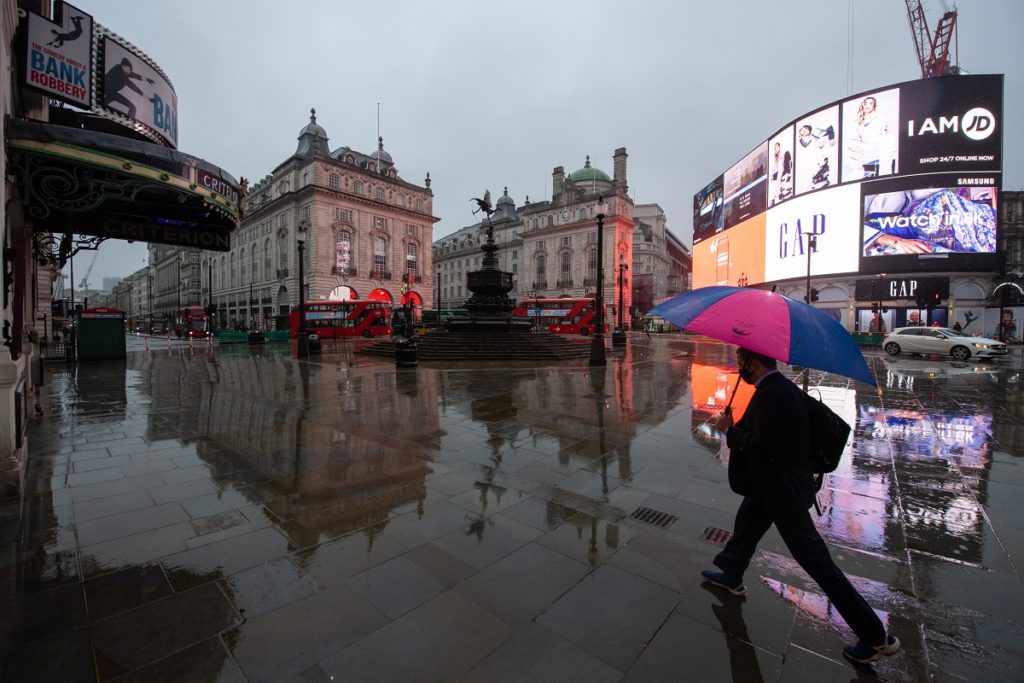The heart of London is being torn out. That’s the sense you get when reading this week’s Economic Statistics Centre of Excellence (ESCoE) blog on an exodus of foreign workers from the capital. We are seeing covid and Brexit combine in truly awful ways to rob the city of its vitality.
Researchers Michael O’Connor and Jonathan Portes estimate that the total population of the UK fell by over 1.3 million people between the third quarter of 2019 and the same period in 2020. London accounted for nearly 700,000 of them, constituting a jaw-dropping eight per cent decline in the capital’s population. It’s a result of covid’s traumatic impact on the tourism, entertainment and hospitality industries, which typically have a high migrant workforce.
But covid only explains what has happened now. The next part of this story involves Brexit. Free movement is over, replaced by settled status for Europeans living in the UK. Many of them will not have signed up for this status before they left. That means that many of those who left will not be able to return when the pandemic is over. They will need work visas, which in most cases they will not be able to secure on the basis of the incomes offered in the sector.
We need to be cautious about studies conducted in this period. Part of the motivation for the ESCoE blog is the obvious defects in Office of National Statistics (ONS) work, due primarily to the covid restrictions. The authors are clear that these are very rough estimates – an attempt to square the circles presented in the official data.


We are grasping around in the fog. But the picture that is beginning to emerge out of the mists is of a London that is slipping away. It is a sudden realisation that the city we return to will not be the same as the one we left behind.
London has never felt so far away. Even for those of us who live here, the centre of town is increasingly becoming a place that resides only in our memory. The streets of Holborn, or Soho, or the City, are empty or subdued. Instead, life has retreated to the London villages – the places, primarily outside of Zone One, where people live rather than where they used to work or socialise.
This new village life – when we can actually leave the house – has its advantages. There’s a pleasing thrum of community and local hubbub. But it comes at the cost of the great shocking majesty of London, of a place that is very large, and chaotic, and filled with the riot of life which emerges when people from many different backgrounds end up in the same place.
London is a subject of disdain for many people. If you even mention it warmly online you will invariably be met with countless voices from outside the capital saying the most hurtful thing they can about it. People who resent London feel free to speak of it in ways which Londoners would never do about places outside.

A pigeon sits on the empty concourse at Westminster underground station in London during England’s third national lockdown to curb the spread of coronavirus. (Credit: Press Association)
And that’s OK. It’s not for everyone. Those who resent it should exercise their insecurities in whichever way they see fit. But for those of us who recognise what it offers, it is the most magical of all cities, the place that allows you to be free, in nearly every way imaginable. It is a place which hardly anyone is from, but where everyone is welcome. A place where you can lead any form of life you wish – from the most atomised anonymity to a full involvement in your community. The place where you are treated fairly and have the opportunity to succeed, if you are prepared to put in the work. A place where difference is valued, not sneered upon, both in its own right and for what it accomplishes.
These are all generalisations, of course. You’ll often hear some glancing statement of prejudice on the London Tube, just as you will elsewhere. But places are built upon generalisations. The ideals of those who live within them form the basis upon which they operate. And one of the most common refrains you find in London is that sense of liberation over diversity, the sense of excitement that comes from embracing the possibilities of the new rather than the reassurances of the past.
One of the mistakes people make about London is to presume that its dynamism is the result of the number of people in it. It is not. It is the result of the kind of people in it.
Immigrants are a very particular sort of person. They are the people intent on making something of their lives. They were not satisfied with where they lived. They wanted more opportunity, more fairness, a chance to secure their dreams in a place that might offer the possibility to do it. Sometimes they moved for love. Sometimes they moved for fear of what would happen to them at home.
Whatever their motivation, people like that carry a certain kind of energy within them: a drive, an urgency. And it is that which provides the unmistakable sense of electricity you get in London, that crackle of life, the sense you have of being in the centre of the universe.
This kind of person is disproportionately likely to be successful, precisely because of that drive. But they are not usually successful at the point at which they move, or else they would have had no reason to do it in the first place.
That is the fundamental flaw in the government’s oft-stated desire to attract the best and the brightest and then evaluate that metric through income. First, it reduces the notion of success to a merely financial one, when in fact it can come in the form of artistic endeavour, charity work, expertise or countless other variants. Second, it misunderstands the sequence of even financial success. London thrived because it offered people a place to succeed, not because it made success a condition of entry.
Covid has ripped that beating heart from London. But it is Brexit which means that it stays outside the body. By replacing free movement with income-requirement work permits, it will deprive the young and the ambitious from the opportunities of this place. And it will deprive this place of the opportunities which come from welcoming the young and the ambitious.
The data right now is hard to secure. Only when covid has passed will we get a better sense of just how much damage the double body-blow of it and Brexit has done to us. But it seems likely that it has robbed us of something truly vital. It will take years – and a change of government – to repair it.
This is not unprecedented. The London we know has not always been this way. Inner London’s population shrank by 20% in the 1970s. The idea of a vigorously alive city powered by immigration is a relatively recent one. But if we keep in mind what made it special, if we remember the values and the qualities which allowed it to thrive, it will be that much easier to repair.
Ian Dunt is editor-at-large for Politics.co.uk. His new book, How To Be A Liberal, is out now.












